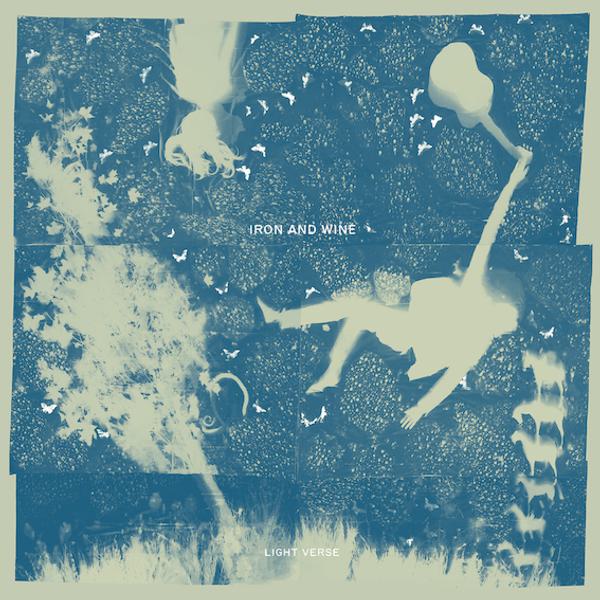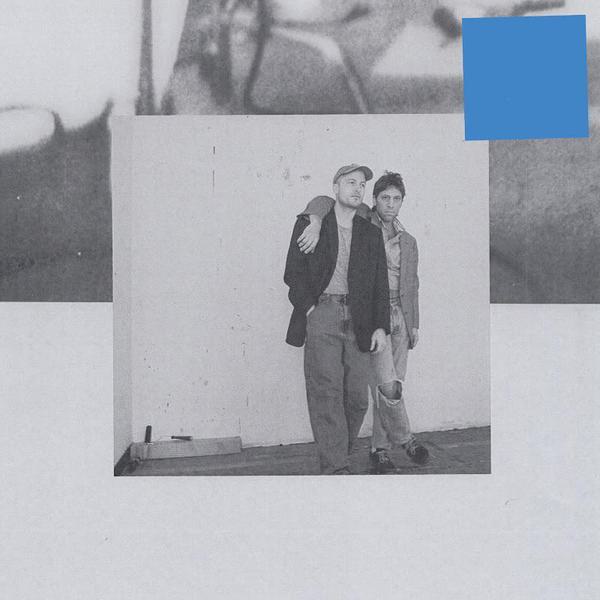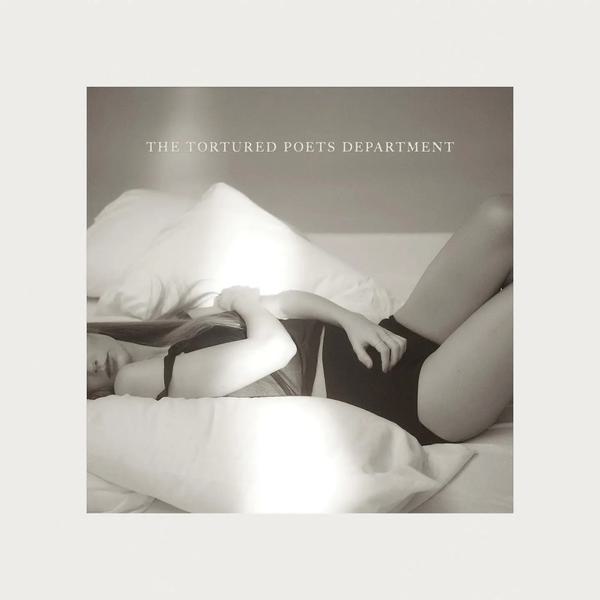
Beach House and the conflict of coexistence
“We wouldn’t stop – it was like a dog killing an animal, we were biting at the jugular to get this album perfect.”
Alex Scally's choice of words feels incongruous on two counts. Firstly, we are sat in the hushed surrounds of a vintage bric-à-brac-cum-tea shop in Shoreditch amidst the clink of bone china and, secondly, they are easily the most aggressive words the mild-mannered Scally has uttered during the entire interview.This monologue of murderous zeal has been directed towards Beach House’s exquisite fourth album, Bloom. It is a glorious set of songs, which further hone and expand Beach House’s swooning dream-pop vibe. “It’s about the movements of life and death – there is dark and light in all the songs,” say the other half of the Baltimore-based duo, Victoria Legrand, who is slightly more gregarious than Scally, her head of curls are purposefully tossed as she searches for the words to describe Bloom. “The reason why it is called Bloom is because of the incredible forces that are inside this record,” she reveals. “Each song is bigger than on the last record in terms of starting off in one place and ending up in another.”
Indeed, Bloom is Beach House’s most widescreen album to date. Sonically, it both veritably pulses and roars, as the duo’s intricate arrangements surge into epic conclusions. Tracks like ‘Myth’, ‘Other People’ and ‘The Hours’ represent some of the most powerful songs Scally and Legrand have ever committed to tape. Yes – they are that good. “I think we are proud of what we did, as we know we gave 500 per cent of ourselves,” Victoria declares. “We were vigilantes about every single moment on this album.”
Beach House formed in 2004 and have since gone quietly about developing their art and collecting fans. After their 2006 self-titled debut and 2008’s Devotion garnered critical acclaim, it was 2010’s stunning breakthrough album, Teen Dream, which catapulted Beach House to indie heavyweight status. “I just think Teen Dream was the one people noticed for some reason,” Victoria says, clearly indifferent to the notion of a ‘breakthrough album’. Alex is even more disdainful of the concept, “The only way that success has had an effect on this album is that we’ve been able to spend an immense amount of time in the studio getting it exactly how we wanted it to be.”
However, for any band talented (and fortunate) enough to make it to a fourth album the pressure is surely on to deliver a career-high tour de force. Their sonic DNA has been already been revealed, blueprints have been established and the bar of expectation has been raised to a vertiginous high. Both Elephant and The Queen Is Dead showcased The White Stripes and The Smiths brimming with confidence and delivering their defining set of songs. Kid A was a fourth album on which Radiohead made an abrupt sonic left turn; a strategy which was never going to happen with Beach House, according to Victoria. “When it is your fourth album and you are aware that your fan base has grown, you are not going to close the doors musically and make tiny, hard-to-listen-to things that don’t communicate anything. What you are going to do is take all that energy and force and keep going.”
This energy has been used wisely. Sonically, Bloom is a masterpiece of controlled opulence, while, lyrically, Legrand explores the intricacies of relationships in zestful totality. “We just wanted the songs to be really big,” reveals Alex, of his band mate’s words. “We were inspired by the very existence of certain albums like Pet Sounds on which every track is a big singular statement. It’s the same with Disintegration by The Cure and Violator by Depeche Mode. These albums have a singular vision. Maybe on Teen Dream a song would be about heartbreak or something and couldn’t feel any bigger than that, for this album we wanted songs to be about heartbreak but then the year after heartbreak and the thoughts you have. The songs encompass a much bigger slice of life.”
Bloom was recorded Texas and mixed in New York City late last year, with Alex and Victoria again working with Chris Coady, who had also produced Teen Dream. “The whole process was nine weeks which is triple what we had for the last record,” Alex reveals. “But, we needed that, it really took that amount of time because we were so obsessed with having this exact sound and this exact feeling on the songs.”
In Coady, Beach House had a safe pair of ears. “He is really great as he is able to help us without interfering at all,” Alex admits. “When we go into the studio, everything is already written – all of the parts to every song, the words, the structure and every instrument is already in place. We demo it all 100 per cent. Then, when we go into the studio it is literally just about trying to get amazing takes, to record everything flawlessly and mix it in this kind of 3D way that Chris is really good at.”
It is difficult to imagine how Chris Coady would operate alongside Beach House. Alex and Victoria are both incredibly sweet, hugely driven and passionately obsessive about their music. They appear, in the short time that The Line of Best Fit are with them, to be completely in tune with one another, as if connected by a psychic thread. We ask whether they ever bicker like ‘normal’ bands might do. “Of course,” says Alex (to our relief). “It is closer than family when you are in a band and take it as seriously as we do. So, we bicker, for sure, but we never bicker about the important stuff like art and music – we agree on those things.”
“We have a very harmonious thing; at this point it is unspoken, we can talk to each other without saying words,” Victoria reveals, carrying on from Alex’s sentence without missing a beat. “It can be in the eyes and in the movements and it can be beyond language. If you are doing something and the other person is not enjoying it, you can tell because they have this thing going on, and only you know what that means. So, there is a strong harmony there. Any tensions that we have are necessary for the creation of something we really believe in and are determined to make happen.”
Alex continues to reveal the fascinating mechanics of Beach House’s working relationship. “There can be massive tension, we both know where we want to go, we write together and we work together and as you are working, someone has to take that step to the next level. Something has to happen and sometimes you feel you are so close but you can’t quite get there. Those moments become very brutal and very intense because it is like a storm brewing. That’s when the conflict happens. It’s the conflict of coexistence.”
Of the pair, Legrand is the most engaging and complex. While Scally is super-polite and the sort of boy mothers dream up for their daughters, Legrand is striking-looking, harder to read and prone to dizzying passages of abstract thought-talk. The French-born multi-instrumentalist – who is the niece of composer Michel Legrand – grew up in rural Maryland and amid a melting pot of musical genres. “I heard Michael Jackson, tons of classical music like Tchaikovsky which I really liked when I was six or seven years old, Travelling Wilburys, and things like Guns N’ Roses and Aerosmith,” she reveals about her early childhood. “I lived on a farm and I had a lot of time by myself. I had a pretty intense imagination.”
Alex Scally appears more matter-of-fact. When we ask him about the initial vision for Bloom, he provides a rather humdrum – but perfectly reasonable – explanation for its catalyst. “As you are touring you are playing the same songs so many times and I think this thing happens where you get completely sick of them – even though they are something you made and love. It pushes you in some direction in that you don’t want to play songs like them again. That has happened to us every single time. We played over 180 shows on Teen Dream and by the time we got back, that last thing in the world we wanted to do was write another Teen Dream. So, we just sat down and played and this is what came out.”
Writing songs to replace the ones that have become tiresome to play live is as good a reason as any, but Beach House are prodigious tourers (“next month we are going to play our 500th show and I’m really proud of that,” says Alex) and have developed an intoxicating performance. “We love touring – we get a lot of energy from it. Seeing new places, playing songs live and having them change. Seeing people’s reaction means you learn about yourselves and the songs. It’s an endlessly engaging experience. Every single show we’ve ever played is different.”
And there is good news and bad news for fans who want to catch a Beach House concert this year. On the upside, the band is sticking to playing medium-sized venues for the foreseeable future. “We don’t ever want to play anywhere too large, because when you get to a certain point it is hard to reach people and their experience starts to go down,” explains Alex. “Even if we get popular enough, we never want to go above 1200 or 1500 venues. We want everyone to have a good seat and for the sound to be amazing.”
That’s all great news; the downside being that, if Bloom is as successful as it deserves to be, fans may struggle to get tickets to such comparatively small shows. But, even the ticketless fans would still be able to lose themselves in the glittering depths of Bloom, and the technicoloured dream world created by the magnificent Beach House.
Bloom is released 14 May via Bella Union.
Get the Best Fit take on the week in music direct to your inbox every Friday

Sinéad Harnett
Boundaries

Iron and Wine
Light Verse

Fat White Family
Forgiveness Is Yours




